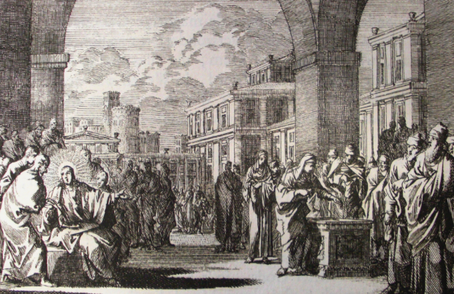 Mark's Gospel narrative is not merely informational in nature; it is meant to move an audience to respond. Mark expected his readers/listeners, that is, the community of believers, to respond to his Gospel—to hear and be affected by the stories and teachings and events that shape his narrative. This is equally true regarding the Mark 12 scene under discussion, the poor widow vs. the duplicitous scribes. The “greater condemnation” (12:40)[1] of the temple establishment and the end of the temple (i.e., its destruction, 13:2) should not be dismissed as mere historical information or relevant only to the Israel of old. Mark crafts his narrative in such a way that pulls his readers/listeners into the story so they would hear that their end can have a similar outcome if they are likewise unprepared, for they, too, do not know when the master of the house is coming (Mark 13:35).[2] The warning to beware of duplicitous scribes is soon followed by Jesus’ disciples pointing out the “wonderful stones” and “wonderful buildings” of the temple (13:1). It is to this which Jesus replies, “Not one stone will be left upon another” (13:2). This is ironic and disappointing. The disciples didn’t get it; they had missed the point. They have not been listening—a dangerous place to be, for this is the OT charge against Israel’s unprepared leadership. Yet all readers/listeners are to guard against their own unpreparedness at the (re)appearance of the Master of the house. [1] Mark uses krima here, which means judgment and is most likely drawn from the Malachi reference (Mal 3:5). [2] The drawing in of the readers/listeners can also be seen in the “hardening” texts directed at the disciples (Mark 6:51–52; 8:14–21). *From “Widows in Our Courts (Mark 12:38–44): The Public Advocacy Role of Local Congregations as Discipleship,” chapter one of Wasted Evangelism.
0 Comments
While attending an early morning men’s prayer and devotional time (as a guest of the one leading the study component), I was horrified by some of the strained thoughts on the passage. The study leader actually tried to stick to the James text; it was the poor rich readers that made comments to lessen the impact of what God was saying through James' words in chapter 5 of his letter. Here are some of my thoughts as the poor rich readers of the Bible commented on James’ words:
Some might not think it, but I was being charitable here. My thoughts were a bit more harsh and even more direct than what I penned above. I will grant that it took me eighteen years after becoming a Christian to begin to see how suburban, affluent, and political I had been reading the Bible--all the while thinking I was interpreting rightly. We need to stop taking the poor out of the texts that actually call us to judgment for not doing something for the poor--neutrality, distance, time, politics will not be allowed as excuses on that day God judges all of our hearts. For on "that day" our riches will have rotten and our garments will have become moth-eaten. Our gold and our silver will have rusted; and their rust, on that day, will be a witness against us and will consume our flesh like fire.
For those interested, I like to post drafts of my current research and writing. Here is the introduction to my up-coming paper that I will present at the November (2016) annual meeting of the Evangelical Theological Society in Atlanta, GA. The full title of the paper: Domesticating Church Growth (Eph 5:18-6:9): The Spirit-Filled Church-Temple Architecture (Wives-Husbands, Children-Fathers, Slaves-Masters) and Outcomes of PersonhoodChurch growth is completely dependent on what one means by “growth.” Typically, a church’s growth is measured by defining growth as numbers of people either in attendance or on a membership role. Conversely, a definition can lead a congregation to church growth goals that promote outcomes that are actually contrary to the nature of the gospel. However, does the concept of biblical church growth offer other classifications to measure successful church growth? Other potential outcomes that would indicate church growth that reflects the very implications of redemption that initiated by the cross of Jesus, the Messiah?
Our focus on numbers as church growth, that is the average tallied attendance in one room on a Sunday or totaled at congregational annual meeting’s reading of a membership roll, creates a social reality for a congregation that promotes “church” attitudes and resulting habits that are hostile to the gospel of Jesus the Messiah, potentially creating space that can dehumanize individuals, foster inequality among populations and demographics, and envision people as consumers to be targeted and the gospel as a product to be marketed. Church growth outcomes related solely to numbers of people in relationship to a building-centered church experience limits potential outcomes that reflect the imagery and trajectories presented in Scripture, particularly as imagined through the text of Ephesians. Paul’s reference to the “filling in the Spirit” (5:18) and the following Haustafel creates space to think biblically, even exegetically, about “church growth,” for the sacred space(s) currently in place (i.e., the typical building-centered church experience and business-centered bureaucratic church models) can be barriers for reimagining from the text a different narrative for church and church growth. Paul’s Letter to the Ephesians presents the local congregation as God’s expanding (growing) household-temple in the Spirit (Eph 2:21-22), making the filling in the Spirit command (5:18) related to (local) church growth, not misapplied toward privatized spiritual growth. Commentators note that the household code (the Haustafel) that follows in Eph 5:21-6:9 is related in some way to the command to be “filled in the Spirit.” This paper takes into consideration that the household code, or domestic relations in the Lord, following the filling command is the expanding structure of God’s Spirit-filled church-temple. The re-oriented domestic relationships in Paul’s Haustafel (Eph 5:21-6:9) are the church-temple’s architecture: the expanding sacred space created by the filling is the household code of wives-husbands, children-fathers, and slaves-masters. This suggests potential church growth outcomes related to “personhood.” The paper will develop this thesis through (I) showing how “sacred space” impacts our concept of personhood; (II) connecting the “filling in the Spirit” to the church-temple imagery in Ephesians; (III) developing a contextual reading of the “filling of the Spirit” command (5:15-6:9); and, (IV) demonstrating how the Haustafel suggests a trajectory of church growth outcomes beyond mere numbers. As Christians, we need to ask: does it matter to us that people live in poverty and in conditions that prevent healthy stable, safe lives and a more positive and fruitful future?
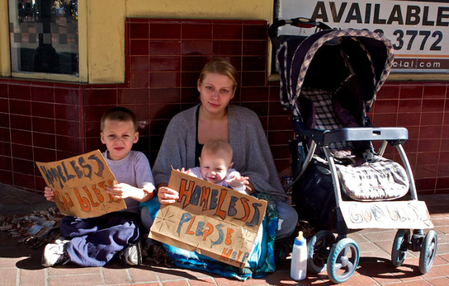 Overwhelmed? You should be. Poverty stats stare us right in the face. These stats (and far many more) can be found on almost any poverty website, NGO website, or among the number anti-poverty agency websites here in the USoA or around the globe. A quick Google search will hunt them down for you. What I am most concerned with here, however, is not just simply connecting you with issues of poverty, but that you understand these statistics are not numbers but real, living human beings--our neighbors, locally and globally. One should recall as you are reading these stats what Jesus referred to as the command like unto the first, Love your neighbor as yourself.
We do not lack for sermons and books on the topic of discipleship. Some Christians speak about discipleship as if it is something to be into—like being into politics or running or weight loss. But such a view of discipleship betrays some faulty assumptions. First, we tend to formulate the call to discipleship as an option for Christians to consider. And second, there is a tendency (especially in today’s consumer oriented churches) to make discipleship attractive. The fact is, there is nothing attractive about discipleship. It calls for an undivided loyalty to the gospel. It calls people to place themselves at the disposal of the Church and Christ's work through it. Dietrich Bonhoeffer said it best: “When Christ calls a man, he bids him come and die.” Both Timothy and Epaphroditus exemplify what J.B. Phillips remarked about the early Church: Perhaps because of their very simplicity, perhaps because of the readiness to believe, to obey, to give, to suffer and if need be to die, the Spirit of God found what He must always be seeking—a fellowship of men and women so united in faith and love that He can work in them and through them with the minimum of… hindrance. What Paul implies in his descriptions of these two men indicates what the true Christian life is. The deeper Christian life is a call to discipleship, a call to authentic Christian living. Whereas sanctification is the process (and progress) of becoming more like Christ, discipleship is the discipline, the lifestyle of the one who is becoming more like Christ. Making one's way through 2:19-30, we discover the marks of the true disciple of Jesus Christ. Paul certainly is informing his friends and church plant back in Philippi about his situation. But in doing so, he uses special words to describe Timothy and Epaphroditus. He wants the Philippians to know these two men are models of the Christ hymn Paul earlier cited (2:6 11). The narrative implies instruction. We should resolve to give the God's church, the local church, and the gospel priority (2:1 4, 12 18). 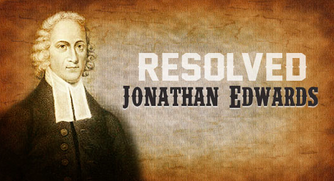 Biographies, autobiographies, and the diaries of great Christian men and women fascinate me. Giants such as John Wesley, George Whitefield, David Brainerd and Jonathan Edwards captivate me. I am convicted, motivated, and humbled by the accounts of those whom God has greatly used to promote His cause and increase His kingdom. In eternity I am sure we will learn of countless others unmentioned in the history books and unnoticed by the general public. Jonathan Edwards, born in 1703, enrolled at Yale at age thirteen. (Thirteen, people!) He was a key instrument through whom God brought a great spiritual awakening to early colonies that had become careless about the faith of their forefathers. His influence was felt in much of New England, New York and New Jersey. Eventually Edwards was asked to become president of Princeton College, a school then devoted to training church leaders. The life of this incredible man of God ended one month after he arrived at his new post. Ah, but what a life! Jonathan Edwards has been the subject of many biographies. All seek to discover what motivated him, what drove him, what fed his passion. For answers, we must return to Yale College and note the aspirations of this young student. Edwards was convinced he must make some resolutions in the presence of his God. The list numbered 70 items, all of which he committed to memory. I am particularly interested in "Resolve 6," which certainly summarizes the passion of Edwards’ heart: “Resolved to live with all my might while I yet live.” In pondering that resolution we must keep two things in context. First, life to young Edwards was a gracious gift from God. Second, all of his resolves were made in the consciousness that God was looking on. His first resolution, in fact, was to “do whatsoever I think to be most to the glory of God.” Since God’s honor and glory were at stake in his life, Edwards further resolved “to find out fit objects of liberty and charity.” Further, he would “live so as I shall wish I had done when I come to die.” This is a reflection of biblical discipleship, most rare in today's modern, consumer-oreiented church. This is a short excerpt from my book, Destroying Our Private Cities, Building Our Spiritual Life, a lay commentary on Paul’s letter to the Philippians. Here’s a sample chapter, “Putting Jesus Back into Our Potential.” Of course you can click through to Amazon to purchase the book, too!
 R.T. France concludes that the “Mark has declared his hand” in the opening verses of his Gospel [1:1-3], setting the framework in which we are to understand his whole story. We accept that Mark has drawn into his Gospel the motifs of God’s dominion, the Exodus, exile, the Spirit, and idolatry. What is undervalued, overlooked, or even ignored is that the same context that contains these obvious correspondences [from OT contexts in Exodus 23, Malachi 3, and Isaiah 40], likewise, includes direct references regarding socio-economic relationships and community responsibilities toward the poor and vulnerable. [From the chapter on Mark 4, "Wasted Evangelism: Social Action Outcomes and the Church’s Task of Evangelism" in my book, Wasted Evangelism.] We know that Jesus left his disciplesus with a “new commandment,” which we read and hear in John 13: “A new commandment I give to you, that you love one another, even as I have loved you, that you also love one another. By this all men will know that you are My disciples, if you have love for one another” (John 13:34-35). 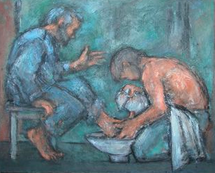 We are familiar with this “new command,” yet at more so the sentimental level. We, however, need allow the context of the story surrounding this command to “love one another to fill the content of this love--the purpose of this love. There are plenteous commands regarding love and loving one's neighbor; so, why is this one particularly a "new" command? When Jesus was bidding his disciples farewell, for his time, that is his demise, was approaching—the time when the King of kings would be betrayed by a close friend; the time when the promised Messiah would face a rigged and illegal trail by those threatened by his very presence; the time when the Messiah-Rabbi-Discipler would be abandoned by the very ones he had trained; and, the time when the Prince of life would be hung on a Roman cross as a traitor and criminal--he gave some final instructions. Have you noticed that this new command to love one another is given within the context of betrayal.
Reading through Acts, the Luke's inspired volume of the early days of the apostles, we don’t see a whole lot of foot-washing and, as well, no such instruction is addressed in the Epistles to the churches. So what are we to make of following Jesus’ example? Why, then, is Jesus' final instructions important to the early church and for us now? The example seems instructive for a community with now leverage and no platform for its message. Perhaps the instruction is an ironic means of survival and endurance--a preventative measure and an embedded community habit against alignment with those who would be betrayers of Messiah and the brethren, inside and out. The following episode, the conversation between Jesus and Peter, is the first “test case.” Typically the focus is on Peter’s misplaced sense of humility, that is, his desire to prohibit Jesus from washing his feet. This foil links Peter to the betrayal framing (noted above), for we read, after Peter’s “wash all of me” over-reach (v. 9), Jesus immediately refocuses on Judas’ betrayal (vv. 10-11). The ensuing exchange between Jesus and Peter solidifies this “betrayal” direction (cf. v. 11). The table fellowship around the final meal where Jesus is the host puts Judas in the place of honor, sitting to Jesus’ side (i.e., his immediate left or right depending on the side of the table Jesus actually sat on and as Jewish tradition informs us). We are, then, in a sense (at least figuratively) sitting in that place of honor (because that's where we seek to be, is it not?). We seek to sit in the place of honor, only to be reseated elsewhere after the host arrives and the meal has begun; the place where Peter and John’s mother wanted them seated next to Jesus, but alas it was reserved for someone else: Judas, the betrayer. Then, after Jesus reveals the betrayer to John and Peter (vv. 21-29) and prior to the “new command,” we hear Jesus explain: “Therefore when he had gone out, Jesus said, ‘Now is the Son of Man glorified, and God is glorified in Him; if God is glorified in Him, God will also glorify Him in Himself, and will glorify Him immediately. Little children, I am with you a little while longer. You will seek Me; and as I said to the Jews, now I also say to you, ‘Where I am going, you cannot come’” (vv. 31-33). Then, Jesus immediately launches into what fulfills the example of the foot washing: “A new commandment I give to you, that you love one another, even as I have loved you, that you also love one another. By this all men will know that you are My disciples, if you have love for one another” (vv. 34-35). Pause long here enough to note, Peter does not hear the “new commandment.” What did the brazen, self-righteous future pillar of the church hear? The glory. Jesus mentions “glory” fives times in the space of two verses (vv. 31-32). Peter and the apostles focused on the grand movement of glory associated with Jesus, the promised Messiah and King. And, what? We can’t go with you? This is exactly what Peter hears and responds to: “Simon Peter said to Him, “‘Lord, where are You going?’” (v. 36). Peter does not hear, “Love one another.” He hears “glory.” He wants the “glory.” Judas’ place of honor at the table as it were. Jesus reveals that, even, Peter can be aligned with the betrayer. For, in fact this is exactly what Jesus implies when he challenged Peter's rash, bravado.
 One of WastedEvangelism’s “In Action” highlights puts into practice the multiplying effect of biblical social action: Joseph’s Storehouse, a non-profit food bank co-op ministry in South Florida, provides a ministry to families and individuals who face food scarcity and through its food development resources also provides area food pantries with pounds and pounds and pounds of food. Here’s their Facebook post from this morning and the picture they shared.
to the confrontation and the seeming ultimate curse of total unforgiveness is all about Jesus vs. Jerusalem temple leadership.  It is interesting that contemporary church leadership typically uses the threat of blasphemy of the Holy Spirit against lay-people who do not surrender to how that leadership understands their own authority and how they perceive God’s will over those very lay-people’s lives. However, church leaders cannot escape the narrative fact that the Mark 3 Beelzebul episode itself, the preceding conflict thread (2:1–3:6), and, as well, the Sower parable (4:1–12) seem specifically directed at them. Jesus uses the convention of shame in the Beelzebul story, pointing to a needed correction within church leadership. For church leaders a posture of shame is needed, which once adopted reminds them of the illusive nature of status, the dangerous allure of power, and the recurring failure of faulty structures to guard the gospel and the church from the destructive influences and seductive cultural patterns that oppose God’s reign over all spheres of humankind. It should not surprise us that the shaming inherent within the Beelzebul episode, intertexted through Mark’s Old Testament links, connects church leaders to the church’s responsibility (and neglect) for the economically vulnerable. Caring, protecting, and advocating for the poor gives away power and public association with those living with the effects of poverty risks lowering one’s church community status. However, maintaining power and its enabling structures so that one’s social standing and status remain in place (even among, and more particularly, the Christian community) at the expense of the weakest and most vulnerable among us is synonymous with blasphemy against the Holy Spirit—breaking covenant, risking outside status and, thus, the condition of being eternally never forgiven. The biography of Jesus vs. Jewish leaders in Mark 1-3 is linked to the biography of the disciples, who like the ones beside Jesus (i.e., his associates and extended family, 3:21; cf. 6:1-6) and like Jesus’ earthly family (3:31–32), are at risk of being outside (6:51–53; 8:16–21; 8:34–38; cf. 9:33–34; 11:31; 16:14), if they, too, are not doers of God’s will (3:33–35). This is particularly relevant to church leaders, as they stand before the Mark 3 text (i.e., the Outsider-Insider sandwich), for the Beelzebul episode ought to shame them in those areas that are too closely identified with that which opposes God’s rule and kingdom (cf. Mark 1:15; 3:25). Mark’s Beelzebul episode functions similar to OT penitential prayers, allowing the reader/listener to enter a life narrative that reflects an appropriate shame for allowing those destructive forces and influences to distract from obedience to God’s word and work in the world. And like OT penitential prayers, a disposition of shame humbles the reader/listener before their “disobedience to the Mosaic ideals” that often reflects “mistreatment of the poor and the weak,” and gives them a way home that maps a spiritual disposition for restoring a fractured obedience to God. Interestingly after confessing that Jesus is the Messiah, Peter is soon rebuked as a surrogate of Satan’s interests: “Get behind Me, Satan; for you are not setting your mind on God’s interests, but man’s” (Mark 8:33). Significant to the reader/listener is the immediate juxtaposition of the Peter-Satan rebuke and Jesus’ admonishment that true followers must deny themselves (the opposite of power, an emptying of power) and take up their cross (v. 34). Church leaders who intentionally incorporate social action in a church’s evangelistic activities fulfill the obedience implications of the Beelzebul episode and, thus, raise Jesus’ honor rating in the public sphere. Without such a public disposition, church leaders are further warned that “whoever is ashamed of me and of my words in this adulterous and sinful generation, of him will the Son of Man also be ashamed when he comes in the glory of his Father with the holy angels” (Mark 8:38).
|
AuthorChip M. Anderson, advocate for biblical social action; pastor of an urban church plant in the Hill neighborhood of New Haven, CT; husband, father, author, former Greek & NT professor; and, 19 years involved with social action. Archives
February 2024
Categories
All
|
Pages |
More Pages |
|
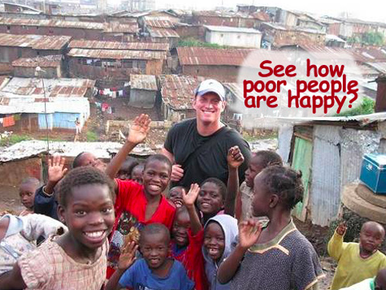

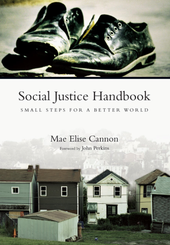



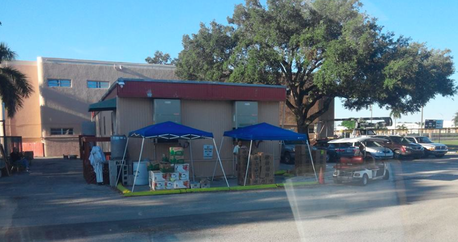

 RSS Feed
RSS Feed